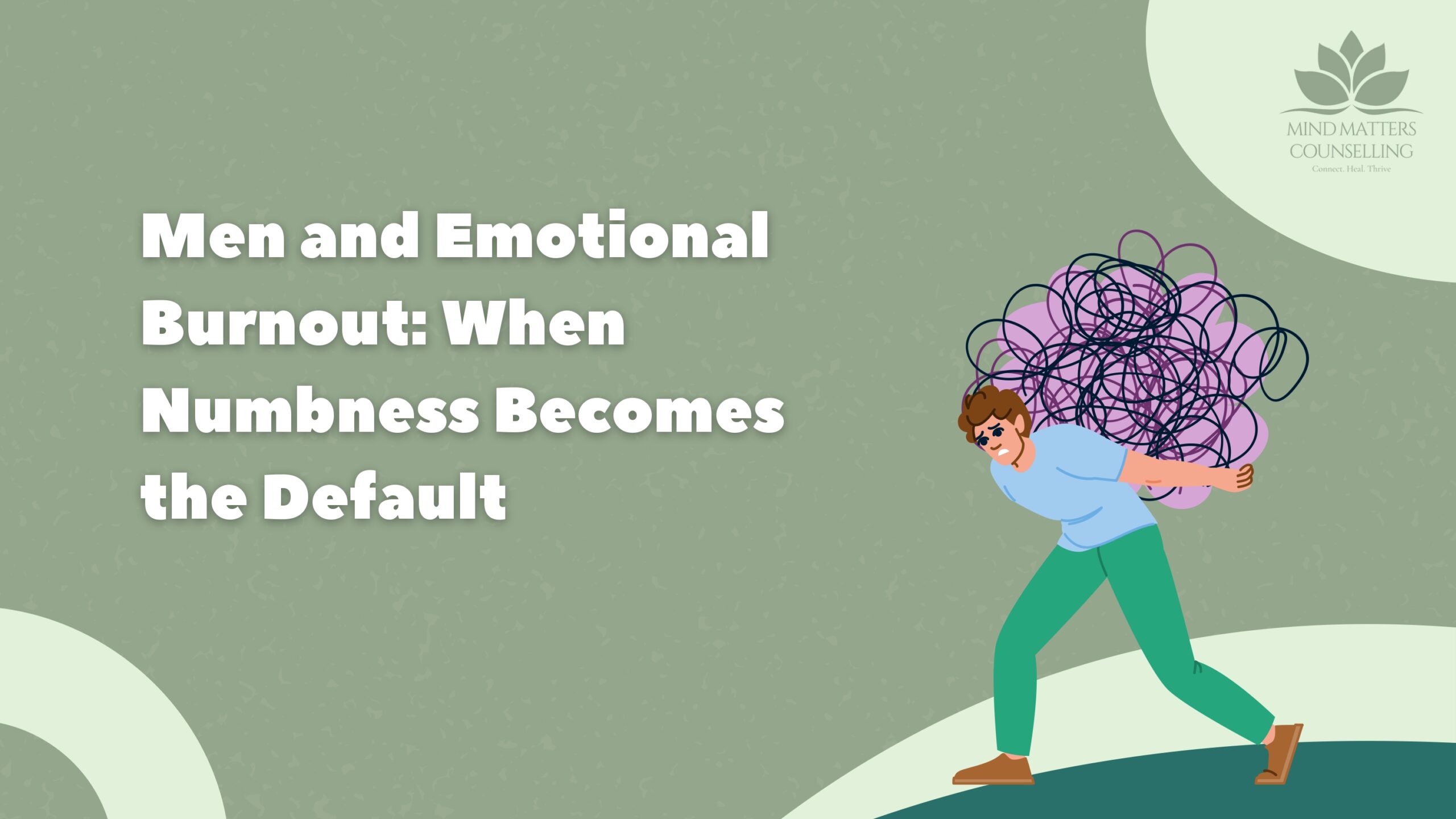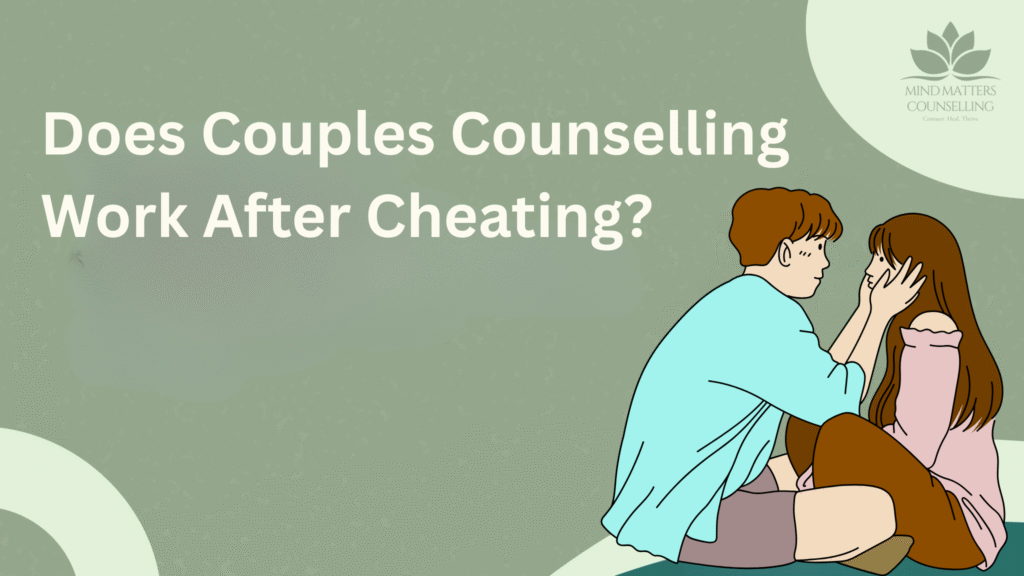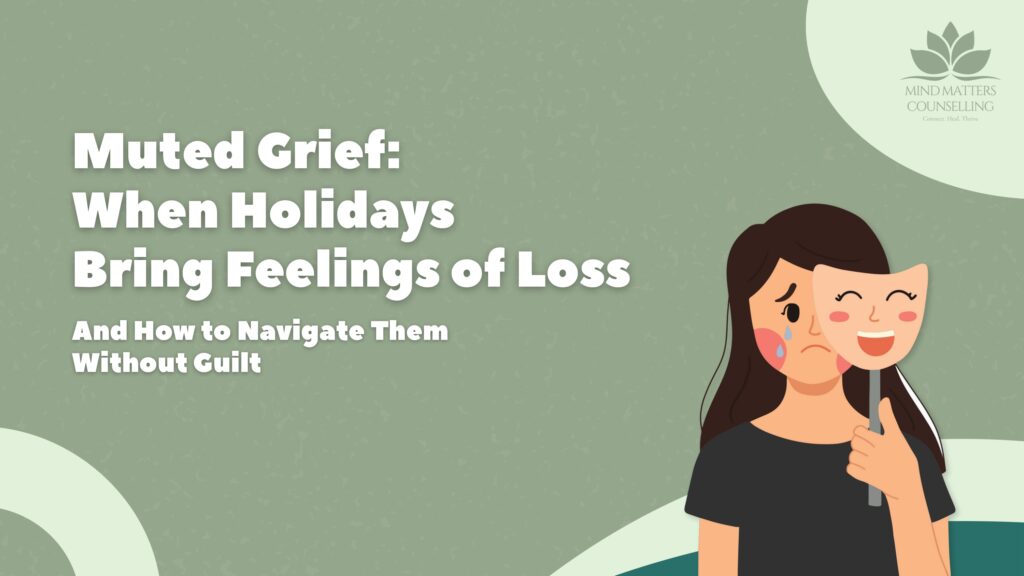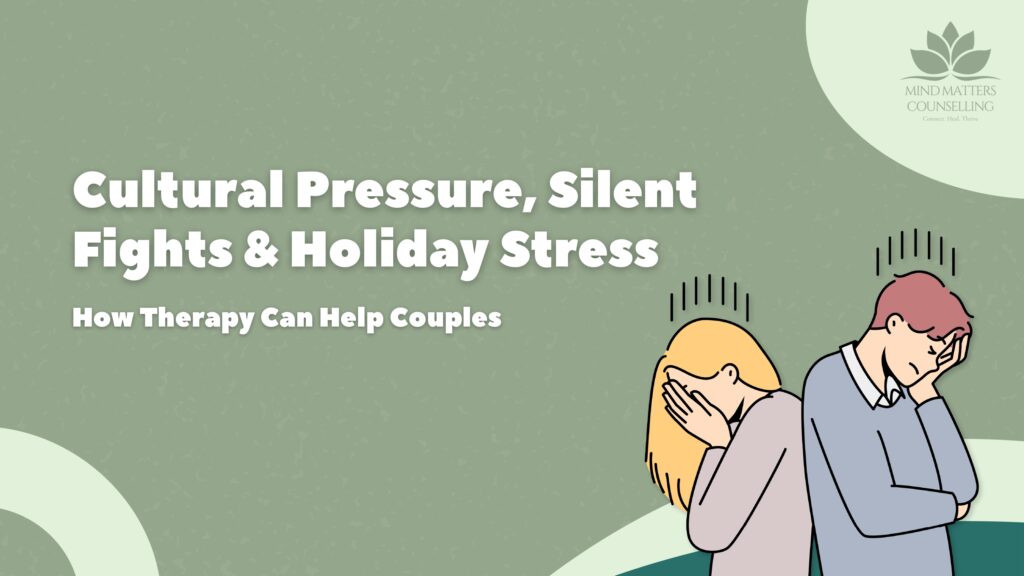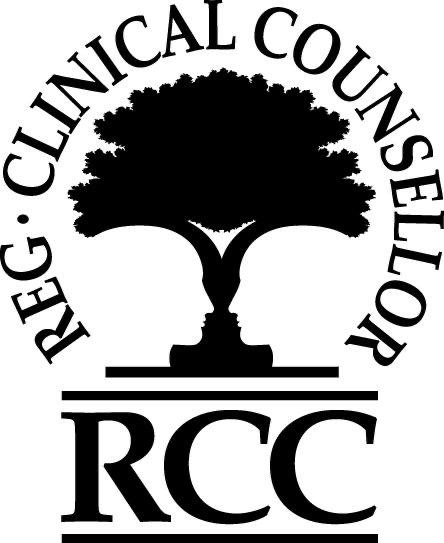In a society that praises productivity and stoicism, many men move through life quietly carrying the weight of exhaustion, irritability, and disconnection without recognizing it as burnout.
For some, the symptoms aren’t dramatic. They’re subtle: zoning out during conversations, losing interest in hobbies, or feeling emotionally “flat” even when life seems fine on paper.
This quiet detachment is often mistaken for indifference, but in therapy, we see it for what it is — the body’s way of saying, “I’m done running on empty.”
What Emotional Burnout Looks Like in Men
Emotional Burnout doesn’t always show up as visible fatigue. For men, it often looks like:
- Irritability or short temper that surfaces in small daily frustrations.
- Loss of motivation — even when tasks are achievable.
- Emotional numbness — difficulty accessing joy, sadness, or excitement.
- Withdrawal from relationships because connection feels like one more demand.
- Over-reliance on distraction (work, gym, gaming, substances) to avoid emotional discomfort.
These are nervous system responses to chronic overwhelm, not signs of weakness. Many men have been socialized to suppress emotional expression, so the body finds quieter — but equally powerful — ways to signal distress.
Why Men Miss the Signs of Burnout
From a young age, boys are often taught to be strong, capable, and self-reliant. Vulnerability can feel like a threat to that image. As adults, this becomes a silent rule: Keep it together. Don’t burden anyone. Just push through.
Over time, this conditioning blurs the line between resilience and avoidance. What begins as “handling it” gradually turns into emotional shutdown. In therapy for men, we often uncover that burnout didn’t happen overnight — it built slowly through years of unprocessed stress, pressure, and emotional isolation.
The Role of the Nervous System
When the body stays in fight-or-flight mode for too long, it starts to protect itself through freeze — a state of detachment, numbness, or low motivation.
From a physiological perspective, burnout is the body’s exhaustion response after prolonged activation. For men, whose nervous systems have often been trained to stay alert, this “freeze” can feel like failure — but it’s actually a signal to pause and repair.
Learning to recognize these cues and regulate the nervous system is one of the most transformative parts of counselling for emotional burnout.
Reconnecting with Emotion Through Therapy
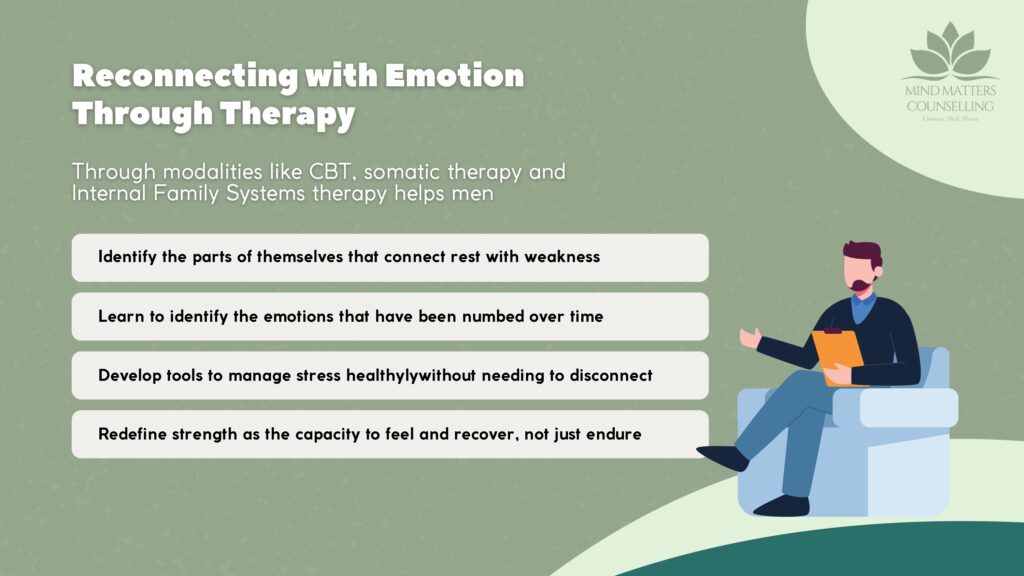
In sessions with men’s mental health counsellors in Burnaby and Vancouver, the work often begins with awareness — helping clients name what’s happening beneath the surface.
Through modalities like CBT, somatic therapy, and Internal Family Systems, therapy helps men:
- Identify the parts of themselves that equate rest or softness with weakness.
- Reconnect with physical sensations that have been numbed out over time.
- Develop tools to manage stress without needing to disconnect.
- Redefine strength as the capacity to feel and recover, not just endure.
This process doesn’t happen overnight. But as emotional literacy grows, men often find a surprising outcome — relationships deepen, motivation returns, and life feels fuller, not heavier.
Why This Work Matters
Untreated burnout in men doesn’t just affect the individual — it ripples through families, workplaces, and relationships. When emotions are buried, they tend to resurface as anger, withdrawal, or health issues. Addressing them through therapy is not self-indulgence — it’s prevention, healing, and growth.
At Mind Matters Counselling, our therapists support men navigating burnout, depression, and emotional disconnection. Whether you’re in Burnaby, Vancouver, or elsewhere in BC, we offer in-person and virtual counselling designed to help you reconnect — with yourself and those around you.
If this feels familiar:
You don’t have to wait until you break down to reach out.
Therapy can help you find balance again — not by changing who you are, but by helping you feel more like yourself.
👉 Book a session with Mind Matters Counselling today and begin your path toward emotional renewal.

